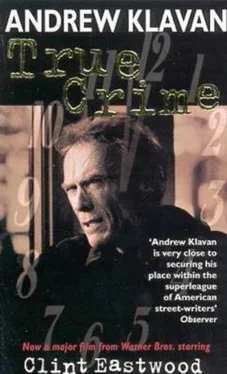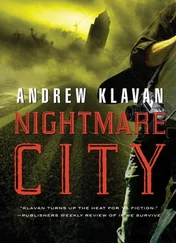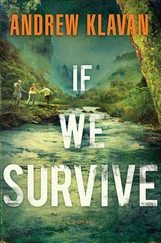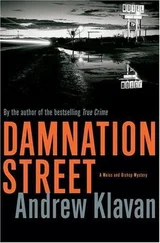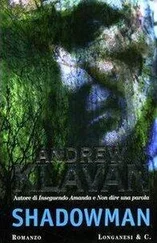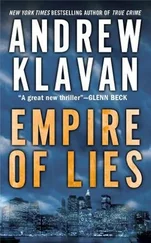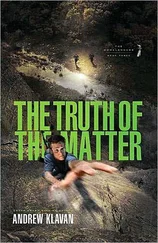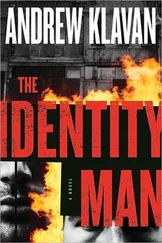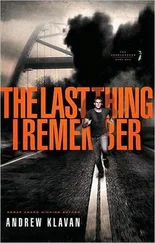Andrew Klavan - True Crime
Здесь есть возможность читать онлайн «Andrew Klavan - True Crime» весь текст электронной книги совершенно бесплатно (целиком полную версию без сокращений). В некоторых случаях можно слушать аудио, скачать через торрент в формате fb2 и присутствует краткое содержание. Жанр: Криминальный детектив, на английском языке. Описание произведения, (предисловие) а так же отзывы посетителей доступны на портале библиотеки ЛибКат.
- Название:True Crime
- Автор:
- Жанр:
- Год:неизвестен
- ISBN:нет данных
- Рейтинг книги:4 / 5. Голосов: 1
-
Избранное:Добавить в избранное
- Отзывы:
-
Ваша оценка:
- 80
- 1
- 2
- 3
- 4
- 5
True Crime: краткое содержание, описание и аннотация
Предлагаем к чтению аннотацию, описание, краткое содержание или предисловие (зависит от того, что написал сам автор книги «True Crime»). Если вы не нашли необходимую информацию о книге — напишите в комментариях, мы постараемся отыскать её.
True Crime — читать онлайн бесплатно полную книгу (весь текст) целиком
Ниже представлен текст книги, разбитый по страницам. Система сохранения места последней прочитанной страницы, позволяет с удобством читать онлайн бесплатно книгу «True Crime», без необходимости каждый раз заново искать на чём Вы остановились. Поставьте закладку, и сможете в любой момент перейти на страницу, на которой закончили чтение.
Интервал:
Закладка:
Just like a man with a fever, weakly, he stood, and pulled up his pants. He yanked his shirt up over his head and unfolded the pressed white T-shirt from the parcel on the table. He put this on and then removed his pants. He had to swallow a wad of distaste and humiliation as he stepped into the plastic underwear. The last article-the loose green trousers-he drew over his legs so quickly that he fumbled and nearly fell over: he wanted to cover the diaper as fast as he could. All the same, with the trousers on too, he could feel the plastic against his skin, a reminder of how shriveled and childlike and helpless he was, his manhood gone.
When he was dressed, when he stood with his shoulders slumped, and his chin lowered, and his mouth half open and his eyes gazing dully at the floor, the door opened and the warden reentered. He came toward the cage bars and nodded at the prisoner.
“Good,” he said again.
Around eleven-fifteen, Luther came out of the cell and told Flowers he could go back in. Flowers was standing in the hall behind the gurney, trying not to look at the gurney but looking anyway from time to time and feeling a macabre and hateful thrill. He moved around it to the door now and he and Luther passed each other just outside the threshold. The tall minister with his black, solid head, his monumental gravity, his sad, yellowing eyes glanced at the smaller man with his silver hair and his face of putty and its small deep-set pair of gray marbles, and the warden glanced back. At that moment, Flowers felt closer to Plunkitt than to Beachum, than to anyone else. He recognized a fellow sufferer, saw in the warden’s look the feeling he acknowledged in his own heart: Thank God, they were almost through it. It was almost done.
Flowers had taken the Bible from his jacket pocket and sat by Beachum’s cot now reading to him.
“The Lord is my shepherd,” he said in his deep, rolling baritone. “I shall not want. He maketh me to lie down in green pastures: he leadeth me beside the still waters. He restoreth my soul …”
It was-as it frequently was-amazing to him how great a comfort this psalm was to him. He sometimes thought it was the mere rhythm of it, or the sound of its words, as much as their meaning. When he read it, his mind bathed in it like warm water and the churning in his belly lessened. He read it with real emotion. “Yea -though I walk through the valley of the shadow of death , I will fear no evil: for thou art with me …” He tried to will his voice to deliver the solace of it across the space between his lips and the ear of the condemned man. That little endless space.
Beachum was glad of the words, of the sound of a human voice, but all the concentration of his soul was on his cigarette. His long, drawn face leaned into it, the limp forelock slashing his brow untouched. He sucked at the cigarette with a hiss, drawing in the smoke like honeyed wine. When the reed burned down, he lit another off the end of it and smoked that one the same way, with the same intensity. He didn’t want any of these last moments to go by without that pleasure.
And all the while he glanced up at the clock, lifting his head at shorter and shorter intervals, not wanting the change to be too great since he last looked, afraid to be taken by surprise, but nauseated by the sight of the second hand moving.
Then, when he looked away, he lost himself for moments in a daydream of the past: the smell of mown grass, the heat of the sun on his skin, the happy baby in the sandbox, his wife at the screen door with the empty bottle of A-1 Sauce. But not for too long. He did not want to get lost for too long. The clock moved faster when he took his attention from it. So he glanced up again, and sucked on his cigarette, and thought that he hadn’t done anything, that he had to think of a way to make them see that, and then was lost in his daydream again with the psalm lulling him.
The smoke, the prayer, the dream, the clock.
At eleven-thirty, they rolled the gurney in.
Luther, of course, understood the importance of the gurney. It was the single most important thing. At the protocol meetings, it was he who had first suggested that prisoners be strapped down in the cage and rolled to the death chamber, rather than walking to the chamber to be strapped down there. When the prisoners first saw the long table with its thick leather straps: that was the most difficult moment for them. That was when they were most likely to shy and panic. Up to that point, a man did not consider himself completely helpless. It was just something he couldn’t imagine. He would have fantasies that he might break away, or resist and “take someone with him.” The sight of the gurney with its straps and its metal frame, its thick wheels, brought the full reality of the situation home. After he lay down there, a condemned man knew there would be no further choices. No one would ask him to please get dressed or please go here or there. He would just be wheeled from place to place-pushed down the hall, into the final chamber-all as easily as moving a shopping cart. He would not even be able to move his arm away from the needle when they pushed it in.
Luther knew you had to get the man through that first moment of realization as quickly as possible. It had to happen in a contained space, with a strong presence of guards.
Then, once you had them strapped down, the worst of the process was over.
So this happened very fast, and silently.
The moment the gurney entered the cell, the bars of the cage slid back. Beachum hardly had time to jump to his feet, to glance in panic at the clock-and then the thing was in the cage beside him, pushing between him and Flowers, crowding him back. And the guards were surrounding him, edging him forward onto the table.
And still, in the condensed time of dreams, there was that interminable instant, before the closing circle of guards touched him, before the first heavy hand lightly brushed his arm, in which Frank still imagined that all manner of outcomes were possible: the dash for freedom, the murder of the guard, the long-planned escape delayed till this unexpected moment or simply waking in his own bed with the smell of the last cool dew wafting in through his window from the summer leaves.
And, again, even before he decided which choice to make, even before he determined that he would go along, he went along, turning his body to make it easier to lift himself onto the table, lifting himself with only the gentlest support from one guard’s hand, lying back upon the coarse blanket, staring up into the fluorescents, and even thinking: It’s just this, it’s just the gurney, it’s not the thing, it’s not the thing itself-while the leather belts were pulled across him swiftly, expertly, and then buckled tight, strapping him down.
2
" C’mon, ya motherfucking hunk of tin!” I was screaming, meanwhile. “Ya shuddering pile of roasted shit, come on!”
But it was not the poor Tempo’s fault. With its carburetor gagging on years of filth and its sluggish oil as black as remorse and its spark plugs kicking with all the timing of a fourth-rate cabaret chorus line, the car still managed to rocket through the still heart of the night, its tires squealing. But the goddamned road. The goddamned road kept wavering in front of me, melting, spreading, blurring behind undulating wisps of whisky fog. Sometimes, it vanished altogether as my head fell forward, as my eyelids slowly closed. And when I jacked my eyes open, when I jerked back against the seat, the Tempo would be angling off toward the curb, squeaking against it as the tires were squeezed or even hopping the hump to skim the grass along the pathways until I wrestled the machine back onto the asphalt, screaming as I say, cursing sloppily, righting the speeding hunk for long moments before I started to sink under again.
Читать дальшеИнтервал:
Закладка:
Похожие книги на «True Crime»
Представляем Вашему вниманию похожие книги на «True Crime» списком для выбора. Мы отобрали схожую по названию и смыслу литературу в надежде предоставить читателям больше вариантов отыскать новые, интересные, ещё непрочитанные произведения.
Обсуждение, отзывы о книге «True Crime» и просто собственные мнения читателей. Оставьте ваши комментарии, напишите, что Вы думаете о произведении, его смысле или главных героях. Укажите что конкретно понравилось, а что нет, и почему Вы так считаете.
